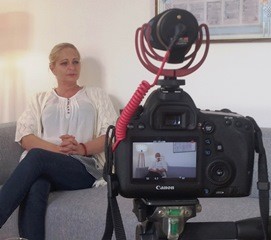
December 2016—Serbia’s new Law on the Protection of Whistleblowers went into effect in June 2015. One year later, Marija Beretka won a whistleblowing case against her employer, marking the first court ruling in a full lawsuit under the new law.
When Beretka was employed at City Inspection Services in Novi Sad, she reported irregularities in the office's collection of parking fines. The irregularities, which she reported to both her employers and the police, involved allowing certain citizens to park illegally without having to pay fines. Because the fines were not collected, the city lost a significant amount of revenue. In what the court deemed an act of retaliation by her employer, she was demoted to a position in another administrative body. The court ordered Beretka’s employers to reinstate her to her previous position and pay damages.
Despite all the hardships she went through, Beretka remains determined to maintain the integrity of the public office she returned to after the ruling. “It felt terribly wrong to just sit by and watch how people misuse the public budget. It is the same budget we all rely on to serve us in need,” she said.
With a strong conviction to right the wrong, she follows in the footsteps of whistleblowers worldwide who have stood up against the corruption of public authorities. According to the 2007 Economic Crime: People, Culture and Controls Survey by Pricewaterhouse Coopers, whistleblowers account for more fraud detection than law enforcement and audits combined.
USAID assistance was pivotal in Serbia’s development and adoption of the new whistleblower law that incorporates global best practices and added protection mechanisms to shield whistleblowers from retaliation. Serbia’s law also specifies channels for blowing the whistle and insists on reverse burden of proof to ensure whistleblowers stand a chance against their employers and authorities when seeking justice.
In the first nine months the law was in effect, 27 out of 36 court rulings were in favor of whistleblowers who filed motions for protective measures.
“In the majority of cases, whistleblowers are requesting court protection from being dismissed from work or transferred to a different workplace, which is the most common form of retaliation,” said Irena Garčević, Belgrade Higher Court judge.
Garčević is one of nearly 1,200 judges trained by USAID and the U.S. Department of Justice in collaboration with the Serbian Ministry of Justice and the Judicial Academy to adjudicate whistleblowing cases.
Eutopia, a Serbian whistleblowing advocacy organization and USAID-grantee, provided legal advice to more than 800 actual and potential whistleblowers over the past two years.
“In most cases we’ve seen since May 2014 through our hotline and the Pistaljka website, the courts responded swiftly. That’s highly commendable and confirms judicial independence,” said Vladimir Radomirović, founder of Eutopia.
More than 50 whistleblowers were guided by Eutopia’s lawyers on how to file for court protection and how to appeal court decisions. Eutopia also provided pro bono representation to seven whistleblowers.
To raise public awareness about whistleblowers’ right to free speech, USAID funded the Ministry of Justice’s “Whistleblowers Are Stronger Now” outreach campaign. The campaign encourages citizen participation in reporting observed corruption and new whistleblower safeguards under the law.
“The path of a whistleblower is a hard one to take. They should be aware of the hardships and responsibility that comes with whistleblowing, and the importance of the fight they are taking on—the fight against corruption,” said Radomir Ilić, state secretary at the Ministry of Justice. “It is only by forging alliances between the whistleblowers, civil society and the media that it will be possible to ensure that whistleblowers’ testimonies effect a change.”
As the famous whistleblower Frank Serpico, known for exposing police corruption in the New York Police Department in the late 1960s and early 1970s, once said, “If one bird sings alone, it only makes a few notes, but when many birds sing together, they make a symphony.”
USAID’s Judicial Reform and Government Accountability Project strengthened Serbia’s rule of law by supporting efforts by independent agencies and civil society to make government open and accountable. The project ended in November 2016.
LINKS
Follow @USAIDSerbia, on Facebook, on Flickr, on YouTube







Comment
Make a general inquiry or suggest an improvement.